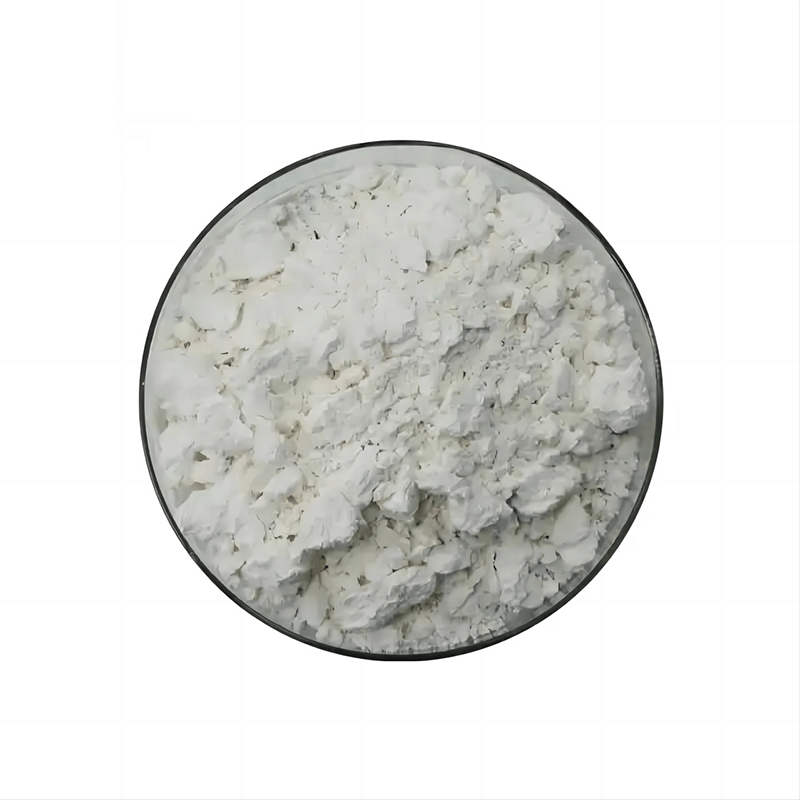I. Introduction
In the pursuit of healthier and more sustainable skincare options, consumers have turned to natural ingredients as an alternative to synthetic compounds. The skincare industry has witnessed a significant shift towards natural products, driven by the increasing consumer demand for safer, eco-friendly options that deliver effective results. Phloretin is one of their focus ingredients for the skincare products.
II. What is Phloretin?
A. Define and explain the origins of Phloretin
Phloretin, a bioactive polyphenolic compound, is derived from the peels and cores of apples, pears, and grapes. It is a vital component in the plants' defense system, protecting them from various stressors such as harmful UV rays, pathogens, and oxidation. With its molecular structure consisting of three rings, Phloretin possesses remarkable antioxidant capabilities and bioactive potential that make it a valuable ingredient in skincare products.
B. Its natural sources
Phloretin can be found abundantly in the peels and cores of apples, pears, and grapes, particularly in unripe fruits. These natural sources contain high concentrations of Phloretin due to their high antioxidant content, which helps protect the fruit from oxidative damage during the ripening process. The extraction of Phloretin from these sources involves carefully collecting and processing the peels and cores to obtain the maximum yield of this potent compound.
C. Properties and benefits for the skin
Phloretin offers a plethora of beneficial properties for the skin, driven by its antioxidant, anti-inflammatory, and brightening effects. As a potent antioxidant, Phloretin effectively scavenges free radicals, neutralizing their damaging effects on skin cells and preventing premature aging. The compound's lipophilic nature allows it to easily penetrate the skin, enhancing its effectiveness.
When applied topically, Phloretin has a remarkable ability to inhibit melanin production, making it an invaluable asset in treating hyperpigmentation, age spots, and uneven skin tone. Moreover, Phloretin helps to inhibit the formation of advanced glycation end-products (AGEs), which are responsible for the breakdown of collagen and elastin, leading to sagging and wrinkled skin. By minimizing the formation of AGEs, Phloretin promotes collagen synthesis, improving the skin's elasticity and reducing the appearance of fine lines and wrinkles.
Phloretin also possesses significant anti-inflammatory properties, which aid in calming and soothing the skin. It helps alleviate redness and inflammation caused by environmental aggressors, such as pollution, UV radiation, and even acne breakouts. With its soothing effects, Phloretin enhances the skin's natural barrier function, promoting a healthier complexion.
The comprehensive benefits of Phloretin have been substantiated through various scientific studies and clinical trials. Research has confirmed its potential in reducing hyperpigmentation, improving skin tone and texture, and stimulating collagen synthesis. Furthermore, Phloretin has been shown to enhance the overall radiance, youthfulness, and vitality of the skin, making it an indispensable ingredient in the formulation of innovative skincare products.
In conclusion, Phloretin's origins in apples, pears, and grapes, coupled with its antioxidant, anti-inflammatory, and brightening properties, position it as a key player in transforming the skincare industry. Its natural sources and scientifically proven benefits make it a sought-after ingredient in the quest for safer, more advanced, and more sustainable skincare options. By harnessing the power of Phloretin, individuals can experience the remarkable transformation of their skin, unveiling a more radiant and rejuvenated complexion.
III. The Rise of Phloretin in Skincare
A. The Background of Phloretin in skincare products
Phloretin has a rich history of utilization in skincare products, dating back to ancient times. Its origins can be traced to traditional medicinal practices, where certain cultures recognized the potent properties of apple, pear, and grape peels. The extraction of Phloretin from these natural sources involves careful processing to obtain a highly concentrated compound. Thanks to advancements in scientific research and technology, modern skincare formulations now harness the power of Phloretin and its remarkable benefits for the skin.
B. The Reasons Behind its Increasing Popularity
The increasing popularity of Phloretin in skincare can be attributed to its scientifically proven effectiveness and versatility. As a polyphenolic compound, Phloretin exhibits powerful antioxidant abilities that help combat oxidative stress and protect skin cells from free radicals. This property is particularly crucial in preventing premature aging, as it supports the longevity and health of skin cells, reducing the appearance of fine lines and wrinkles.
Additionally, Phloretin's ability to inhibit melanin production makes it a sought-after ingredient for addressing issues such as hyperpigmentation, age spots, and uneven skin tone. By intercepting the melanin synthesis pathway, Phloretin helps fade existing dark spots and prevents the formation of new ones, resulting in a more even and radiant complexion.
Furthermore, the anti-inflammatory properties of Phloretin contribute to its popularity in skincare products. Inflammation is a common underlying factor in various skin conditions, including acne, rosacea, and sensitive skin. Phloretin's soothing effect helps calm the skin, reducing redness, and promoting a healthy, balanced complexion.
C. Examples of Phloretin-containing Products in the Market
The skincare market boasts a range of innovative products that harness the power of Phloretin. One notable example is a Phloretin-infused serum. Formulated with a high concentration of Phloretin, this serum delivers potent antioxidant and brightening properties directly to the skin. It is particularly effective in addressing hyperpigmentation, uneven skin tone, and signs of aging, revealing a smoother and more youthful appearance.
Phloretin is also incorporated into moisturizers, where its hydrating properties enhance the skin's moisture retention capabilities, promoting a plump and supple complexion. In addition to its hydration benefits, these moisturizers infused with Phloretin offer antioxidant defense against environmental stressors, preventing damage caused by pollution, UV radiation, and other external factors.
For those seeking targeted treatments, there are Phloretin-containing spot correctors available. These products are designed to fade dark spots, blemishes, and post-inflammatory hyperpigmentation, thanks to Phloretin's ability to inhibit melanin production. With consistent use, these spot correctors can significantly improve the clarity and evenness of the skin.
In conclusion, Phloretin's rich history, scientifically proven benefits, and growing popularity have led to its incorporation into various skincare products. From serums to moisturizers and spot correctors, Phloretin offers a wide array of transformative skincare options. By embracing the power of this natural ingredient, individuals can experience remarkable improvements in their skin's appearance, ultimately revolutionizing the skincare industry.
IV. The Benefits of Phloretin in Skincare
A. The Impact of Phloretin on Various Skin Concerns
Phloretin, a natural compound derived from apple, pear, and grape peels, has gained significant attention in the skincare industry due to its remarkable impact on various skin concerns. Scientific studies have demonstrated its ability to penetrate the skin's barrier and deliver transformative effects at a cellular level.
Phloretin's multitasking properties make it a versatile ingredient capable of addressing multiple skin concerns simultaneously. It acts as a potent anti-inflammatory agent, soothing irritated skin and reducing redness associated with conditions such as acne, rosacea, and sensitive skin. This anti-inflammatory effect is attributed to the modulation of pro-inflammatory cytokines, which play a crucial role in the skin's immune response.
Moreover, Phloretin possesses unique skin-brightening properties that make it an effective solution for hyperpigmentation, age spots, and uneven skin tone. By inhibiting the enzyme responsible for melanin synthesis, Phloretin reduces the overproduction of melanin, which leads to excessive pigmentation. Over time, this interference in the melanin production pathway helps fade existing dark spots and prevents the formation of new ones, resulting in a more even and luminous complexion.
B. The Effectiveness of Phloretin in Reducing Hyperpigmentation and Age Spots
Hyperpigmentation and age spots are persistent concerns, especially for those seeking a more youthful and evenly toned complexion. Phloretin's ability to interfere with the melanin synthesis pathway makes it a powerful ingredient in tackling these specific issues.
Melanin is responsible for the color of our skin, hair, and eyes. However, overproduction of melanin, often triggered by sun exposure, hormonal changes, or inflammation, can lead to dark spots and uneven skin tone. Phloretin, through its inhibitory effect on tyrosinase, an enzyme crucial for melanin production, disrupts this excessive pigmentation process.
Within the skin, Phloretin's presence inhibits the conversion of tyrosine into melanin, preventing the formation of dark spots. Additionally, it helps break down existing melanin particles, effectively lightening age spots and promoting a more uniform complexion. This process occurs gradually, necessitating consistent use of Phloretin-containing skincare products for optimal results.
C. The Antioxidant Properties of Phloretin and its Ability to Protect Against Environmental Damage
One of the most significant benefits of Phloretin in skincare is its potent antioxidant activity. Antioxidants play a crucial role in neutralizing harmful free radicals generated by external factors such as pollution, UV radiation, and environmental toxins. These free radicals can damage skin cells, leading to premature aging, collagen degradation, and oxidative stress.
Phloretin's antioxidant prowess lies in its ability to scavenge free radicals, neutralizing their damaging effects. It acts as a shield, protecting skin cells from oxidative stress and preventing the breakdown of collagen and elastin, the proteins responsible for the skin's firmness and elasticity.
Furthermore, Phloretin's unique molecular structure allows it to effectively penetrate the skin's layers, making it an excellent candidate for providing long-lasting antioxidant protection. Its lipophilic nature ensures it can easily cross the lipid-rich cell membranes, enhancing its action against free radicals and reducing the negative impact of environmental stressors on the skin.
In conclusion, Phloretin's multifaceted benefits in skincare are directly linked to its anti-inflammatory, brightening, and antioxidant properties. By addressing various concerns such as hyperpigmentation, age spots, redness, and environmental damage, Phloretin has emerged as a natural ingredient with transformative effects. Its ability to penetrate the skin, affect melanin synthesis, and neutralize free radicals sets it apart as a key player in revolutionizing the skincare industry.
V. Scientific Research and Studies
A. The Power of Science Backing Phloretin's Effectiveness
Scientific studies on Phloretin have undeniably affirmed its effectiveness in transforming the skincare industry. Researchers have extensively explored its unique properties and mechanisms of action, shedding light on why this natural ingredient is capturing the attention of skincare enthusiasts.
Studies have revealed Phloretin's ability to penetrate the skin's barrier and reach the deeper layers where its transformative effects occur. This remarkable feature distinguishes Phloretin from many other skincare ingredients, enabling it to engage with skin cells and deliver its multiple benefits at a cellular level.
Moreover, a growing body of evidence implicates Phloretin as a potent anti-inflammatory agent. Inflammation is a key driver of various skin concerns, from acne and rosacea to sensitive, reactive skin. By modulating pro-inflammatory cytokines, Phloretin helps soothe irritated skin, reduce redness, and promote a calmer complexion. These findings provide compelling scientific support for Phloretin's anti-inflammatory properties and its potential in addressing skin conditions characterized by inflammation.
B. Clinical Trials: Uncovering the Evidence-Based Results
Clinical trials have played a pivotal role in unveiling the true potential of Phloretin in skincare, generating evidence-based results that bolster its reputation as a transformative natural ingredient. These studies, conducted under controlled conditions with human participants, contribute a robust foundation to support Phloretin's efficacy.
Multiple clinical trials have specifically explored Phloretin's impact on hyperpigmentation, age spots, and uneven skin tone. The results consistently demonstrate Phloretin's ability to inhibit the enzyme responsible for melanin synthesis, thereby reducing excessive pigmentation and promoting a more balanced complexion. Participants using Phloretin-containing skincare products have reported significant improvements in the appearance of dark spots, leading to a brighter and more even skin tone. These findings substantiate the anecdotal evidence surrounding Phloretin's reputation as an effective solution for hyperpigmentation concerns.
Furthermore, clinical trials have also elucidated the antioxidant properties of Phloretin and its role in protecting the skin against environmental damage. Participants using Phloretin-based formulations have demonstrated improved skin resilience against oxidative stress caused by pollutants and UV radiation. These studies support the notion that Phloretin acts as a powerful shield, preventing premature aging, collagen degradation, and oxidative damage to the skin.
By adhering to rigorous scientific methodologies, clinical trials provide invaluable insights into Phloretin's effectiveness and help establish its credibility as a game-changer in the skincare industry. These evidence-based results contribute to the growing body of research supporting the use of Phloretin in skincare formulations.
In conclusion, scientific studies and clinical trials have solidified Phloretin's reputation as a transformative natural ingredient in the skincare industry. The ability of Phloretin to penetrate the skin's barrier, its anti-inflammatory properties, and its efficacy in reducing hyperpigmentation and protecting against environmental damage have been meticulously examined and validated. These findings serve as the scientific bedrock underpinning the efficacy of Phloretin, elevating it to the forefront of skincare innovation.
VI. Potential Side Effects and Precautions
A. Exploring Phloretin's Safety Profile
In considering the transformative potential of Phloretin in skincare, it is crucial to assess its safety profile. Extensive research has been conducted to understand any potential side effects or adverse reactions associated with Phloretin.
To date, no significant adverse events have been reported with the use of topical Phloretin-containing products. However, as with any skincare ingredient, individual sensitivities can vary. It is recommended to perform a patch test before full application to ensure compatibility and minimize the risk of unexpected reactions.
B. Proper Usage and Precautions for Phloretin
For individuals considering Phloretin-containing products, the following guidelines and precautions are advised:
Patch Test: Apply a small amount of the product to a discreet area of the skin and observe for any adverse reactions such as redness, itching, or irritation. If any adverse reactions occur, discontinue use immediately.
Sun Protection: While Phloretin can offer some protection against environmental stressors, including UV radiation, it is essential to supplement its benefits with a broad-spectrum sunscreen when exposed to the sun. Sunscreen not only safeguards the skin from harmful UVA and UVB rays but also enhances the overall effectiveness of Phloretin.
Proper Application: Apply Phloretin-containing products as directed by the manufacturer or skincare professional. Follow the recommended frequency, quantity, and application technique to optimize its benefits without overloading the skin.
Consultation: If you have any underlying skin conditions, allergies, or concerns, it is advisable to consult a healthcare professional or dermatologist before incorporating Phloretin into your skincare routine. They can provide personalized recommendations based on your specific needs and medical history.
By adhering to these precautions, individuals can safely harness the transformative potential of Phloretin in their skincare routines, maximizing its benefits while minimizing the risk of adverse reactions.
VII. Conclusion
In summary, Phloretin has emerged as a natural ingredient with the power to reshape the skincare industry. Through scientific research and clinical trials, its effectiveness in targeting a range of skincare concerns, from hyperpigmentation to inflammation, has been scientifically validated.
Furthermore, Phloretin's safety has been extensively assessed, with no significant adverse effects reported. Nevertheless, it is important to conduct patch tests and adhere to proper usage guidelines to ensure the best possible experience with Phloretin-containing products.
With its ability to penetrate the skin's barrier, its anti-inflammatory properties, and its efficacy in reducing hyperpigmentation and protecting against environmental damage, Phloretin stands as a transformative force in skincare.
As a call to action, we encourage individuals to explore the potential of skincare products containing Phloretin, while always prioritizing sun protection and consulting professionals when in doubt. Embark on this natural skincare journey, and experience the transformative effects of Phloretin for yourself. Let nature and science revolutionize your skincare routine.
Post time: Nov-21-2023










